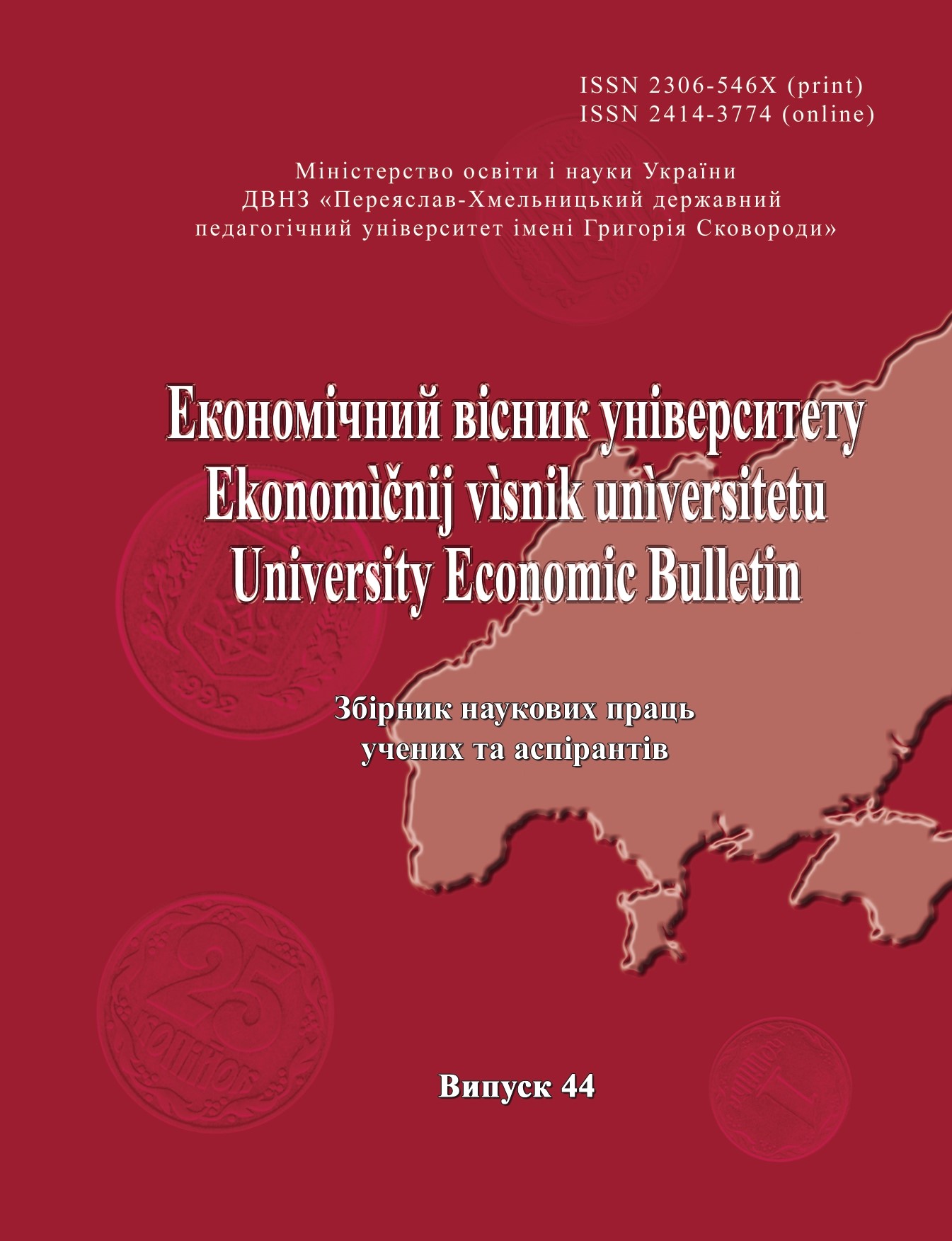Потенціал сталого розвитку Запорізької області в умовах децентралізації (на прикладі трудових та агропромислових ресурсів)
Sustainable development potential of the Zaporizhzhia region in decentralization conditions (the case of labour and agricultural resources)
Author(s): Lidiia Horoshkova, Ievgen Khlobystov, Uliana PysmennaSubject(s): Agriculture, Energy and Environmental Studies, Regional Geography, Public Administration, Economic development
Published by: Університет Григорія Сковороди в Переяславі
Keywords: united territorial communities; financial capacity; per capita income; sustainable development; natural resource potential; resources;
Summary/Abstract: Actuality of research theme. Transformation of the administrative and territorial system in Ukraine is one of the components of the reforms that Ukrainian society needs. One of the ten priorities of the Ukraine 2020 Strategy for Sustainable Development [1] approved by the Presidential Decree is decentralization and reform of the state socio-economic system, restructuring of the territorial organization of economic objects. Therefore, Ukraine and its economy need urgent scientific substantiation and practical implementation of measures for sustainable geospatial development of the country in the conditions of transformation of the administrative-territorial structure, provided the effective use of available potential. Problem statement. To ensure the effectiveness of the process of reforming the administrative and territorial structure of the country, new models, tools and mechanisms of governance and decision-making are needed that will ensure the sustainable development of territories, regions and the state as a whole. That is why there is a need to identify priority factors for the development and use of the territories' potential, which ensures their sustainable geospatial development in the long term. Analysis of the last researches and publications. Such scientists are engaged in the modern aspects of decision of problems of decentralization and reformation of administrative-territorial device in a country, as Pavliuk A. P., Oliinyk D. I., Batalov O. A., Datsko O. I., Murkovych L. L., Molodozhen Yu. B.and other [1-4]. The results of own researches of problem are in to [5-12]. Selection of unexplored parts of general issue. The issue of managing the sustainable development of territories in the context of decentralization requires special attention and in-depth research, both theoretical and practical. Therefore, there is a need to conduct research into the factors influencing the potential of sustainable development of territorial communities at the current stage of reforming the administrative and territorial structure of the country. Task statement, research aim. The purpose of the study is to investigate the components of the effectiveness of the decentralization process and the conditions for the formation of financially viable and self-sufficient united territorial communities (UTC) on the basis of sustainable development of territories and the national economy. Method or methodology of realization of research. In the process of realization researches drawn on scientific (analysis and synthesis, induction and deduction, analytical grouping) and special (abstracting, economical-mathematical design, etc.) methods of study of the economic phenomena and processes. Exposition of basic material (job performances). The paper analyzes the level of financial capacity of the UTC in Zaporizhzhia region and the factors influencing its level. The method of clustering of UTC by the level of financial capacity using statistical indicators of relative frequency and frequency with the subsequent determination of the confidence interval for mediums is proposed. The following were selected as the clustering criteria for assessing financial capacity: income per person; own income per person; infrastructure subsidy for one person. As factors of influence on the level of utilization and development of labor potential it is suggested to use the indicator of development expenditures (capital expenditures) per person. It is established that the main factors of formation of financial capacity and self-sufficiency of the UNC are not the population but the resource potential. The components of this potential are natural-geographical (land, forest, water, mineral, biological, energy) and socio-economic (material, financial, human and intangible) resources. Dispersion analysis has shown that the size of the ATG does not affect the level of their financial capacity and efficiency. Conclusions. The paper analyzes the level of financial capacity of the UTC in Zaporizhzhia region and the factors influencing its level. The technique of clustering of UTC by financial capacity level using the statistical indicators of relative frequency and frequency is proposed. It has been established that the main factors of formation of financial capacity and self-sufficiency of UTC are resource potential, which are components of natural-geographical and socio-economic resources. Dispersion analysis has shown that the size of the UTC does not affect the level of their financial capacity and efficiency.
Journal: Економічний вісник університету
- Issue Year: 2020
- Issue No: 44
- Page Range: 87-98
- Page Count: 12
- Language: Ukrainian

